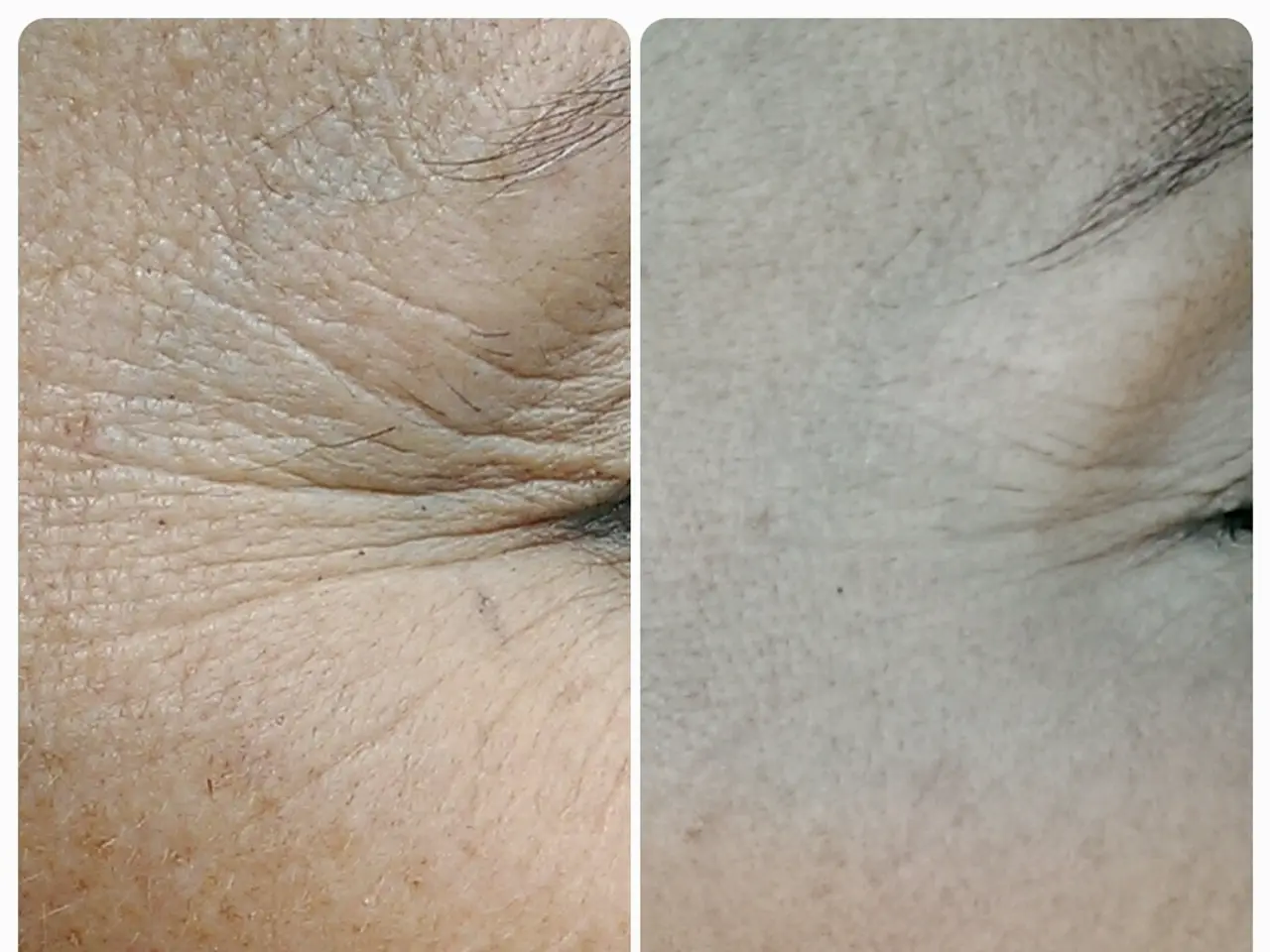Chronic inflammation in the skin may leave lasting impressions, providing insights into the enigmatic condition of psoriasis.
Researchers at Rockefeller University have made a groundbreaking discovery that could revolutionize our understanding of inflammatory diseases, such as psoriasis, IBD, asthma, multiple sclerosis, and even certain types of cancer.
The team's findings suggest that stem cells across the body, including those in the skin, gut, and lungs, may "remember" past inflammatory events. This memory, it seems, plays a crucial role in how these diseases develop and progress.
In the case of psoriasis, a condition characterized by an accelerated life cycle of skin cells, the memory of past inflammation appears to make the skin's stem cells more reactive. This heightened reactivity leads to an overproduction of skin cells, causing the scaly, itchy patches that are a hallmark of the disease.
The key player in this process is a gene called Aim2. This gene produces a protein that acts like an inflammation sensor, alerting the body that there's danger ahead. Inflammatory diseases like psoriasis may be caused by both overactive immune cells and primed skin stem cells, with Aim2 playing a significant role in the latter.
Inflammation causes changes in the accessibility of certain genes associated with inflammation. In epithelial stem cells of the skin, genes involved in immune responses and inflammation regulation are altered. Specific gene changes are less well-defined but involve epigenetic modifications such as DNA methylation and histone acetylation that affect gene expression linked to inflammatory processes.
Mast cells, a type of immune cell, activate and release mediators (e.g., histamine, cytokines) that induce inflammation in skin tissue, influencing gene expression in epithelial stem cells during such inflammatory responses.
Interestingly, the study found that these changes in stem cells make them more responsive, not just to inflammation, but also to the healing process. In mice, wounds healed more than twice as fast if the skin had experienced inflammation before, even if that inflammation occurred six months earlier.
However, this rapid-healing trick, while amazing in normal circumstances, turns destructive in conditions like psoriasis. The skin's memory of past inflammation causes it to heal too quickly and too aggressively, leading to the overproduction of skin cells and the symptoms of the disease.
The Rockefeller team's findings could radically change how psoriasis is treated. Future therapies might aim to reset or erase the inflammatory memory held by stem cells, slowing down their reaction to inflammation and potentially halting the progression of the disease.
Other chronic conditions tied to inflammation, such as eczema and certain gut disorders, may follow similar mechanisms. A better understanding of how inflammation affects stem cells and other components of tissue will revolutionize our understanding of many diseases, likely leading to novel therapies.
Read also:
- Peptide YY (PYY): Exploring its Role in Appetite Suppression, Intestinal Health, and Cognitive Links
- Toddler Health: Rotavirus Signs, Origins, and Potential Complications
- Digestive issues and heart discomfort: Root causes and associated health conditions
- House Infernos: Deadly Hazards Surpassing the Flames








